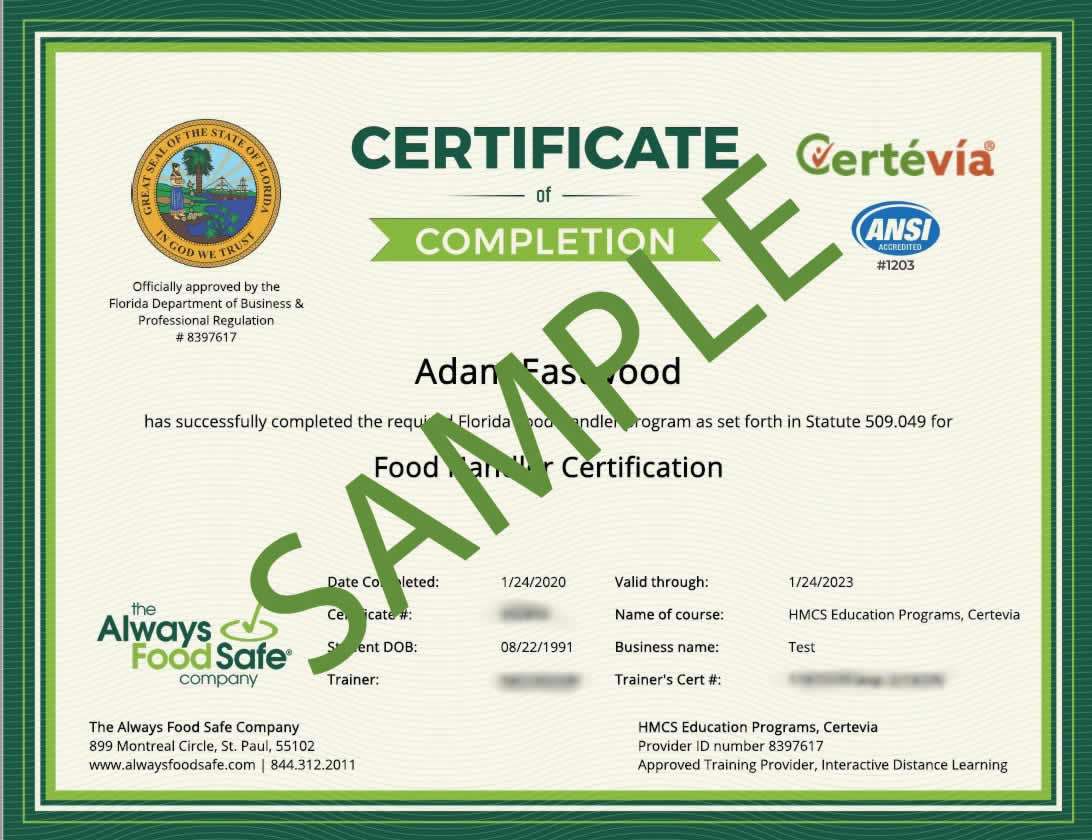Certified Food Manager Certification: Your Path to Food Security Conformity
Certified Food Manager Certification: Your Path to Food Security Conformity
Blog Article
How to Acquire Your Food Manager Certification Swiftly
Getting your Food Supervisor Certification successfully needs a systematic approach, beginning with an extensive understanding of the details needs in your location. Choosing an approved training program that lines up with your schedule is essential, as is utilizing suitable study materials to sufficiently plan for the examination. After completing your training, timely scheduling of the examination can avoid unnecessary delays. Nevertheless, numerous individuals neglect crucial facets that can better accelerate this process, which may substantially influence their accreditation journey. Discovering these subtleties can inevitably simplify your course to certification.
Study Qualification Demands

Hopeful food supervisors should first recognize which qualifications are acknowledged and requisite in their territory. This usually involves examining regional legislations and laws that determine food security methods and the qualifications required for supervisory settings. Moreover, understanding the eligibility criteria, such as prior experience in food service or related fields, is important.

Choose a Reliable Educating Program
Choosing the appropriate training program is an essential step after identifying the certification demands in your location. The performance of your training can substantially affect your understanding of food safety and security concepts, which are crucial for passing the accreditation exam. Begin by looking into programs certified by respectable organizations, such as the American National Criteria Institute (ANSI), as these commonly comply with industry requirements.
Consider the training layout that ideal fits your knowing style. Assess the curriculum to guarantee it covers essential topics such as foodborne illnesses, cleanliness, and secure food managing practices.
Confirm that the program includes thorough products and resources to assist in your discovering. By thoroughly selecting a training program that lines up with your demands, you can enhance your preparation for the food manager qualification test.

Get Ready For the Test

Make use of research study products that line up with the test's structure. Lots of companies provide research overviews and practice tests, which can be indispensable in gauging your understanding and readiness. Involve in energetic learning methods, such as flashcards or group conversations, to enhance retention of essential info.
In addition, consider go to this web-site attending evaluation training courses or workshops that supply comprehensive insurance coverage of vital subjects. These sessions usually include expert understandings that can clear up complicated concepts and reinforce your understanding.
Arrange Your Examination Date
Picking the ideal time to schedule your test day is an important action in the certification process. Picking an appropriate date permits you to assign enough time for preparation while stabilizing various other personal and specialist commitments. Consider your present workload and any type of future events that may distract you from focused research study.
Goal helpful site to schedule your examination after finishing your preparatory coursework and method examinations. This guarantees you feel great in your knowledge and skills. Additionally, consider scheduling your test for a day when you are commonly at your most sharp and focused, as mental quality can substantially influence performance.
It is likewise important to examine the accessibility of examination slots in your location, as some locations may have limited openings. Arranging your examination well beforehand can help you safeguard a preferred time and location. Moreover, understand the qualification's expiry policies, as selecting a day too far in the future might bring about a lapse in your expertise.
Inevitably, the objective is to locate an equilibrium between preparedness and accessibility, ensuring you approach your test with self-confidence and a strong structure of understanding.
Maintain Your Certification
Keeping your certification is important for making certain ongoing proficiency and compliance in food administration methods. Certification normally requires revival every 3 to 5 years, relying on the issuing company. To remain present, it is necessary to understand the details revival demands of your qualification body, as they might differ.
Continuing education is a vital part of maintaining your certification (Certified Food Manager Certification). Taking part in workshops, workshops, or on the internet courses connected to food monitoring, safety, and hygiene methods not only improves your knowledge yet might additionally accomplish renewal demands. Additionally, many qualification organizations use sources and training sessions to help you stay educated about the current industry criteria and regulations
Practicing great food administration within your work environment is equally essential. Frequently applying your understanding and abilities reinforces your skills and might provide documents that shows adherence to best methods.
Lastly, maintain track of your accreditation's expiry day and any required paperwork for the revival procedure - Certified Food Manager Certification. Proactively taking care of these aspects will make certain that you maintain your certification without disruption, allowing you to continue giving efficient and safe food administration in your expert atmosphere
Conclusion
Accomplishing Food Supervisor Qualification efficiently demands a critical strategy that consists of comprehensive study of regional requirements, selection of an appropriate training program, and thorough prep work for the evaluation. By sticking to these described actions, people can efficiently navigate the accreditation process and improve their professional qualifications in food monitoring.
The path to getting food manager accreditation is not consistent; it differs significantly depending on regional laws and the specific qualification program chosen. The performance of your training can considerably affect your understanding of food safety concepts, which are essential for passing the qualification exam. By very carefully picking a training program that aligns with your demands, you can boost your prep work for the food manager accreditation exam.
Detailed prep work is essential for Click This Link success on the food supervisor certification exam.Attaining Food Manager Accreditation successfully requires a tactical method that includes extensive research study of local demands, selection of a suitable training program, and diligent preparation for the evaluation.
Report this page